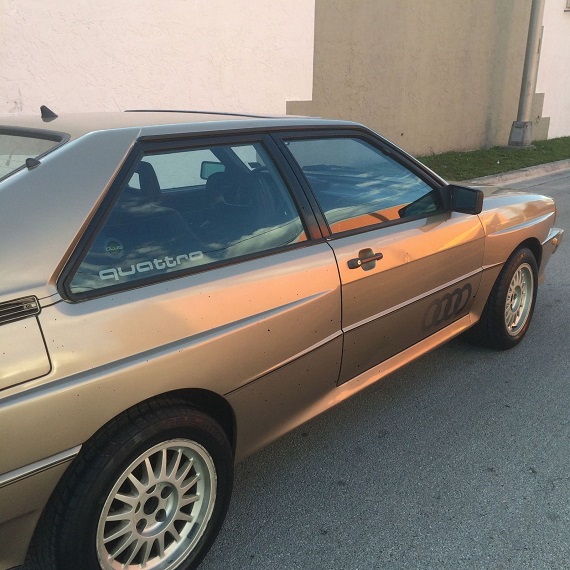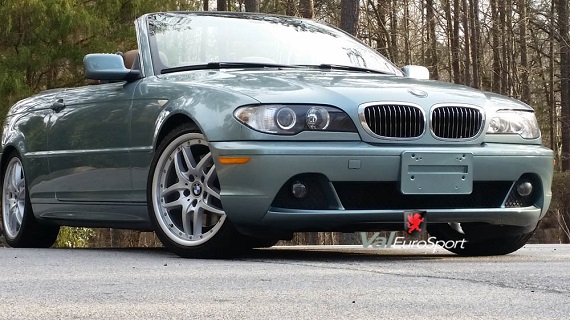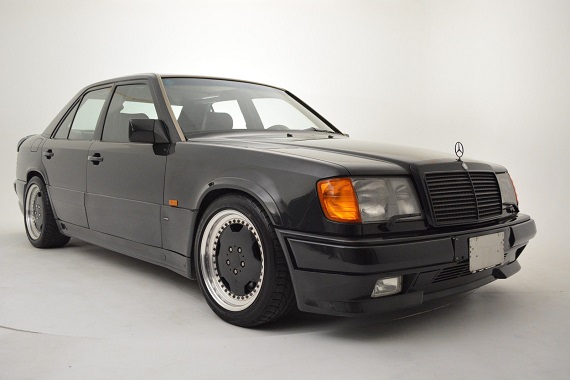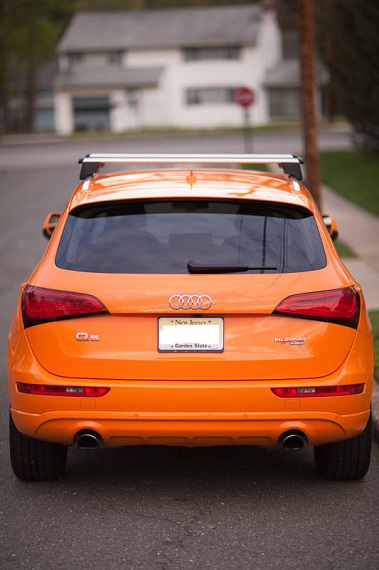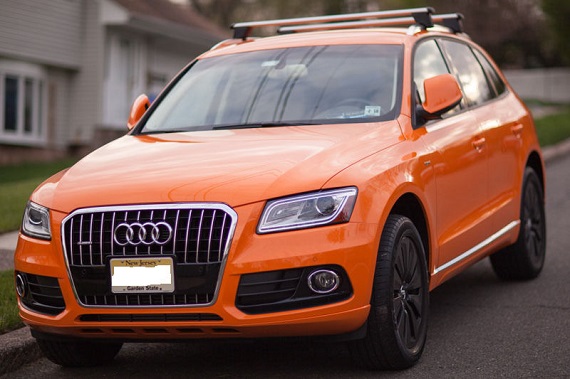At the first Audi Club track event I went to, I excitedly hurried my 4000CS quattro through the hills of Northwest Connecticut to Lime Rock Park. The year was 1997, and while I had been heading to the track for many years this was my first foray to an Audi event. Back in ’97, old Audis were pretty uncommon – hard to fathom considering how scarce they are today. So going to an all-Audi event promised to be a special collection of audacious Audis, and I was certainly not disappointed. There were no less than ten Quattros in attendance, and may have even been more – I struggle a bit to remember, but a fair chunk of the instructor core had them and even a few students showed up with the legendary cars. It was a bit like those nature shows of Ridley Sea Turtles arriving on Mexican beaches once a year to lay eggs; a baffling display of the entire world’s population arriving in one spot at one time when for the rest of the year they’re spread around the world’s oceans. Quattros, especially large numbers of Quattros, are like that. Let’s put some figures into perspective – E30 M3s are rare, right? Sure, only around 5,000 made it to the U.S. with a pretty good amount still being sold on eBay today being driven as they should. 190E 16V owners enjoy pointing out that their cars are much more endangered, as just shy of 2,000 made the Atlantic crossing. Low residuals mean a lower percentage of those original 1,953 still are dog-legging around. E24 M6, E28 M5, E34 M5? Sure, all very low production cars. But the Quattro? 664 came here, and how many are left today is a good question. I’d estimate the number of Quattros remaining alive and in good condition to likely be less than 2/3rds of the original 664 – figure maybe 400 are still around and serviceable. Think about the last time you saw an E30 M3 cruising along down the road (it doesn’t count if you own one or were at a show)? You’re at least ten times less likely to happen across a Quattro. Finally, they’re starting to be appreciated for their special nature, but they’re certainly still critically endangered in the U.S.:
Author: Carter
So much attention is levied upon the V8 and widebody models AMG produced in the late 1980s and early 1990s that it’s easy to overlook the “lesser” examples from Affalterbach. One such model is the 3.4E, based on the W124 chassis and available in sedan, coupe or wagon versions the M104 was beefed up in typical AMG fashion. Displacing 3.4 liters (clever naming scheme, that!) and producing nearly 270 horsepower it was certainly no slouch. However, its relative obscurity and lower power output means it plays second (or third) fiddle to the 6.0 V8 models and even Mercedes-Benz’s own 500E. While those cars put out substantially more power and raise more eyebrows than the inline-6 will at any German car meetup, the 3.4E is nevertheless a potent package that offers enthusiasts a taste of classic AMG performance on a more reasonable budget:
CLICK FOR DETAILS: 1991 Mercedes-Benz 300E AMG 3.4E on eBay
Comments closedThere is nothing wrong with your television set. Do not attempt to adjust the picture. We are controlling transmission. If we wish to make it louder, we will bring up the volume. If we wish to make it softer, we will tune it to a whisper. We will control the horizontal. We will control the vertical. We can roll the image, make it flutter. We can change the focus to a soft blur or sharpen it to crystal clarity. For the next hour, sit quietly and we will control all that you see and hear. We repeat: there is nothing wrong with your television set. You are about to participate in a great adventure. You are about to experience the awe and mystery which reaches from the inner mind to – The Outer Limits.
Alright, after a bit of a lengthy admission that we can’t cover all German cars or even all that we’re interested in, I’m going to present you with something a little different. SUVs scarcely come across these pages despite their popularity, but then hybrids also don’t usually make it on to the GCFSB search criteria. So by a “little different”, I mean a lot. A lot of weight, for starters, as this Q5 hybrid tips the scales with no passengers at a hefty 4,400 lbs. A lot of technology? Undoubtedly, the Ingolstadt engineers packed this car full of every gadget at their disposal, and then had at the engine to couple it with an electronic hybrid assist. A lot of color? That too, as the buyer of this Q5 hybrid took it to the next level and let Audi Exclusive paint it the interesting shade of Papaya Orange. That’s sure a lot of a lot to take in….
CLICK FOR DETAILS: 2013 Audi Q5 Hybrid Exclusive on eBay
1 CommentRallycross has always struck me as an interesting balance between circuit racing and rally driving, and frankly it’s completely captivating. If Formula 1 is controlled aggression and World Rally is controlled chaos, rallycross is more aggressive chaos. In the 1980s it became very popular in Europe as the dumping ground for ex-Group B cars. If you want to be captivated and feel a bit sick at the same time, go watch some British rallycross from ~1987-1989. You’ll see Audi Sport Quattros, Lancia Deltas and Peugot 205 T16s, Ford RS200s and even an occasional turbocharged, all-wheel drive Porsche. In short, it’s sort of the ultimate in rally racing that never really was, with these cars going head to head at full chat. That’s what is captivating, but watch a few seconds more than the wild start and you’ll quickly feel sick because typically in the first corner one of these legends is completely balled up. By the end of the race, if you have one or two out of the original 6-7 cars fully functioning that is considered an accomplishment. But these aren’t 24 hour grueling tests of endurance – they’re three or four laps of a short grass, dirt and tarmac surface. That’s right – generally 50% plus attrition in 3 minutes.
It’s awesome. It’s like the Outback Steakhouse of racing – no rules, just right.
